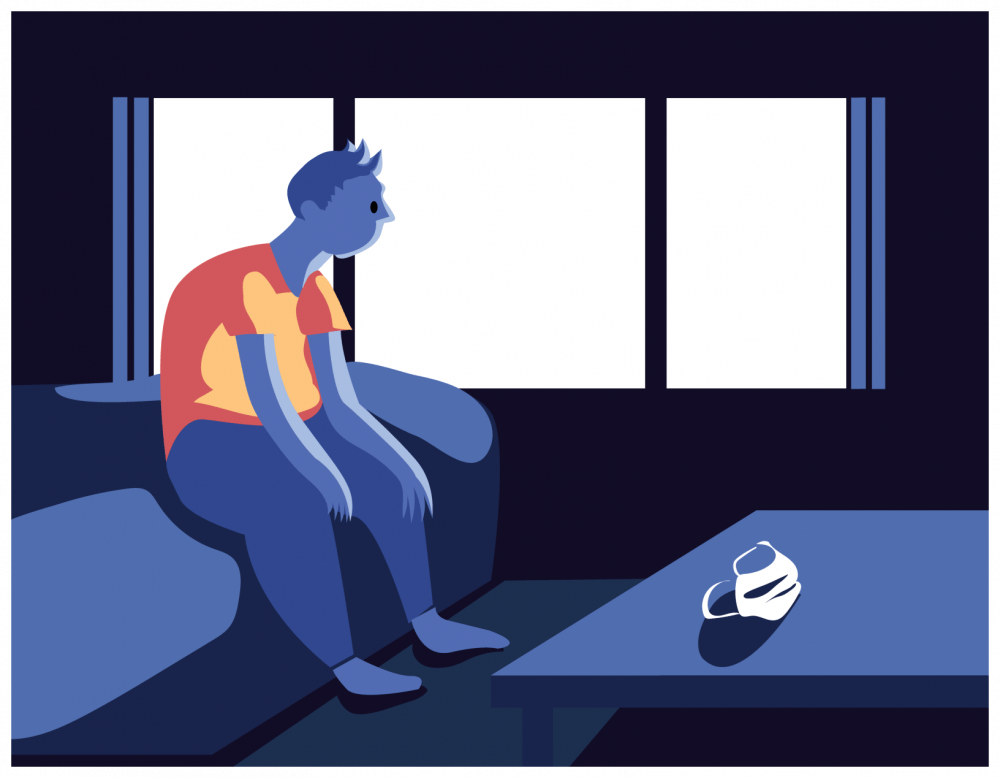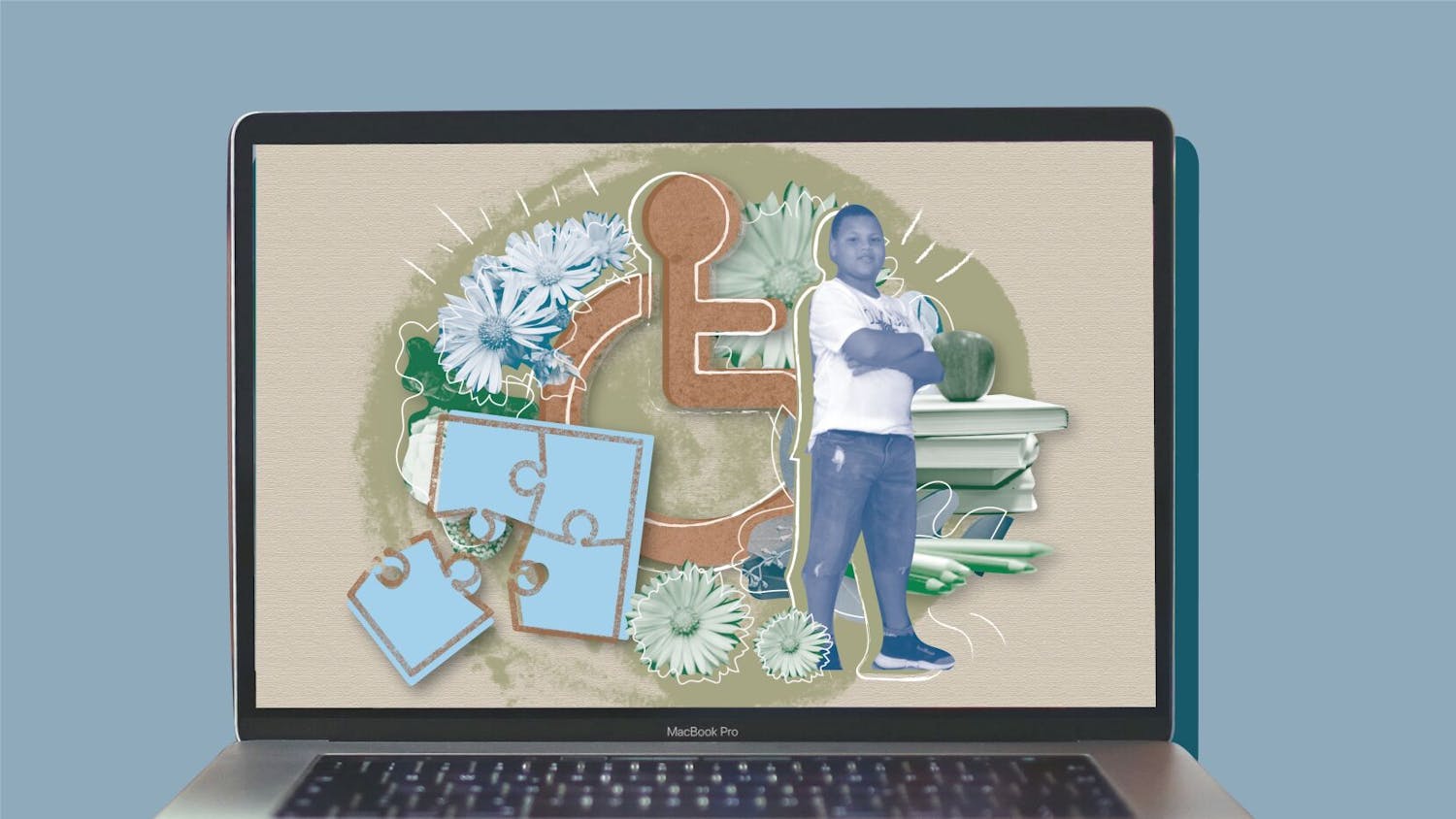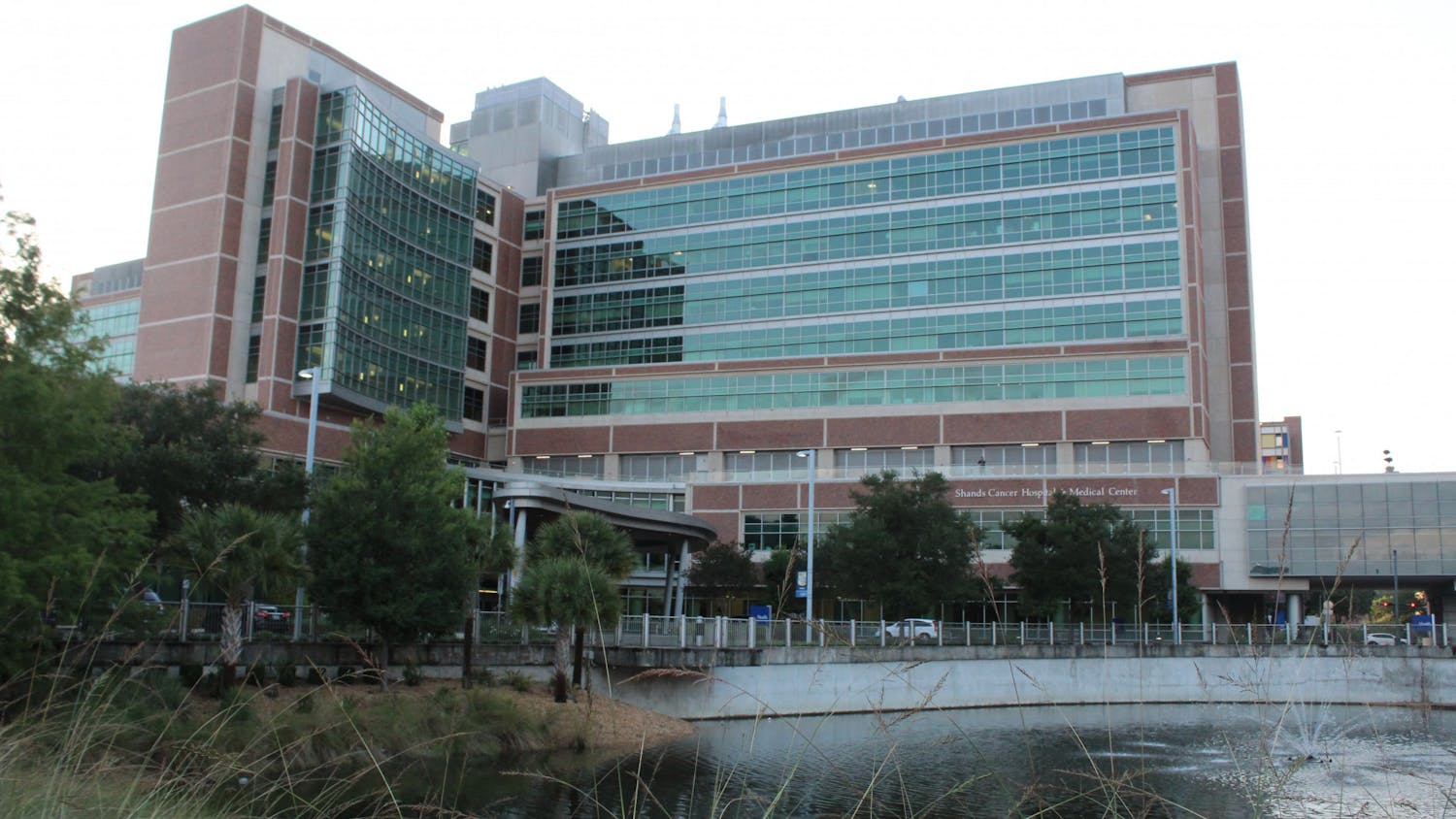
Adjusting to new rules during the pandemic has been challenging for everyone, but for people with disabilities, adapting to the new normal can be a lot more challenging.
It took Tillissa Barcia four tries to find a mask that her autistic son, Austin, would wear.
The first mask hurt his ears, and the material was too scratchy on his face. The 9-year-old felt like he couldn’t breathe in the second one, and he wouldn’t even touch the third.
Barcia, a 36-year-old Gainesville resident and mother of two special needs children, needed to get Austin a mask so she could bring him to his weekly therapy appointment. But her son’s sensory issues made every mask she tried too uncomfortable for him.
Finally, Amanda Cornell, who Barcia buys hair bows from, had an idea: cut up a shirt that Austin likes to wear, and send her the material. Cornell would make a mask out of it and send it back to Barcia. Barcia said she was hesitant but went ahead with the plan.
It worked.
Austin loved the mask, so much so that even though he only has to wear it once a week, he wants to wear it around their home every day.
“I’m a bandit! I’m a bandit!” he says while wearing it, according to Barcia.
Barcia said she has to wash it daily, but Cornell set aside the extra fabric from the shirt for Austin in case the mask wears out.
COVID-19 has changed the way society functions. People are staying home, remaining six feet apart in public and grappling with new recommendations to keep themselves and their loved ones safe.
The Centers for Disease Control and Prevention recommends people wear a cloth face cover when in public to prevent the spread of COVID-19.
The Alachua County Commission mandated on May 4 that people must wear face masks in public places and can be fined if they don’t comply. The mandate was revoked and reinstated on Tuesday. Exceptions to the rule include children under 6 and those who have “demonstrable” medical conditions.
For those with disabilities, these societal changes can complicate already difficult situations.
Barcia said the change in routine alone has been a lot for her son to handle, even though she has tried her best to follow a regular schedule by using timers throughout the day. Therapy appointments can take longer now, she said, and her kids can’t go to the park or the store like they used to.
Ann-Marie Orlando, associate director for UF’s Center for Autism Related Disabilities, which provides resources and assistance for families, caregivers and professionals who work with people who have autism, said a core feature of autism is the desire for routine.
“And certainly, things are not the same as they used to be,” Orlando said.
Orlando said she encourages families to stick to a schedule, and that schedule should be made apparent through the use of visual aids like lists and drawings.
She also said a useful way to help individuals with autism understand why they have to abide by new rules is to explain them in a story format. Many of these “social stories” are available online for families to use for free.
“It’s just about explaining as it's been explained to all of us,” she said.
Barcia said she hasn’t had an issue with making her son understand the severity of the pandemic. In fact, his knowledge of it has been her biggest problem.
“He knows more than he should,” she said.
Her son has severe anxiety, and knowing that COVID-19 can cause death has made him very worried. Barcia said they’re able to handle it, and said her family was able to adjust to the situation a lot better than some people. She said it has been easier because they already have to be adaptable in their everyday lives.
“This is our normal,” she said.
For others, adjusting has been a lot more stressful. Kevin Gifford, a 36-year-old with epilepsy, doesn’t wear a mask in public because it can trigger his seizures.
He had brain surgery last Monday, May 11, at UF Health Shands Hospital to place a responsive neurostimulation, or RNS, device that would help him control his seizures. The surgery was originally scheduled for March, but he had to postpone it due to the pandemic.
“I was really upset when it got postponed,” he said. “I had a lobectomy in 2017 and continued having seizures afterwards,” Gifford said.
Gifford said having been put on and taken off of so many medications has caused a lot of health issues, and he said he hoped this surgery would ease that.
On Monday, he went to a dispensary for medical marijuana. He visited the same dispensary last Friday, May 15, after being released from the hospital, and said the employees understood why he wasn’t wearing a mask. But this time the employees said he had to either wear a mask or leave. He complied, but was worried the mask might trigger a seizure.
“I held one over my mouth and explained to them, if something happened, to please call EMS [emergency medical services] and show them my medical ID bracelet,” Gifford said.
Having had seizures in public before, Gifford said it can be very upsetting.
“Coming to full awareness with everyone standing around or EMS there, not being able to acknowledge anyone or anything yet knowing what is going on, can be very upsetting and embarrassing,” he said.
A lot of people don’t know what to do during seizures, he said, and don’t even know what a non-convulsive seizure looks like. Gifford said he has to rely on a medical ID bracelet to explain what’s going on.
Gifford hasn’t had trouble with other businesses, but said he often gets judged by other shoppers who make comments and accuse him of using a fake disability to get out of wearing a mask.
“It is very disheartening, with how much our community used to gel together,” Gifford said.
Stephen Hardy, a professor at UF who teaches American Sign Language and deaf studies, has also faced challenges because he is deaf.
If people talk to him while they are wearing face masks, he has no way of understanding them because he can’t read their lips. If he asks them to pull down their masks, he said people are often rude to him and won’t cooperate because they are afraid they will get sick.
Hardy said warnings, alerts and even addresses from the president of the United States often don’t have ASL translators or closed captioning. The professor said he has to wait until the news is written or a news channel broadcasts it with captions.
Hardy said he feels overlooked.
“Everything is happening so fast,” he wrote in an email to The Alligator. “And most agencies or people tend to forget people with disabilities.”
Contact Kaelyn at kcassidy@alligator.org. Follow her on Twitter @kaelyn_cassidy.





